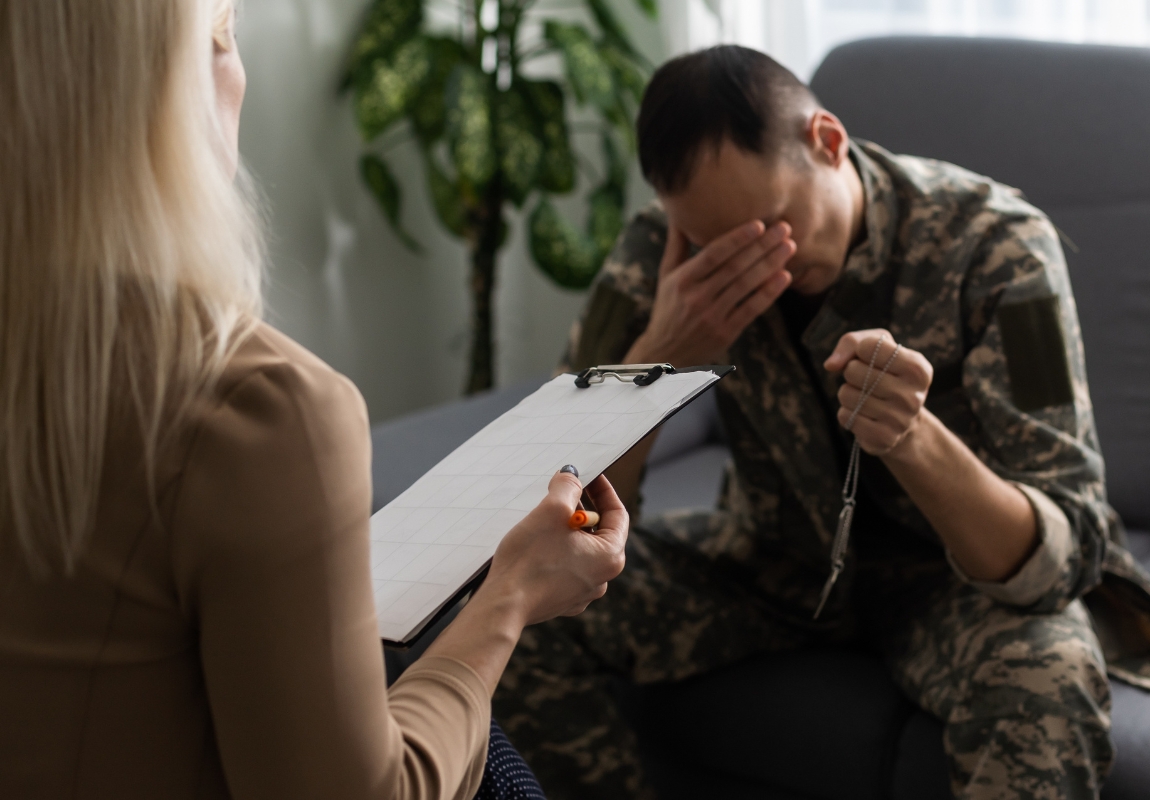The challenges of military service can leave deep and lasting impacts on mental health. Among veterans, post-traumatic stress disorder (PTSD) is one of the most prevalent issues, often compounded by struggles with alcohol abuse. But why is there such a strong link between PTSD and alcohol misuse? And where can veterans turn for support in overcoming these challenges?
Understanding the connection between trauma and substance abuse is key to addressing these issues effectively. For those seeking recovery, treatment centers like those operated by Aliya Veterans provide compassionate care and evidence-based solutions to help veterans break free from addiction and reclaim their lives.
Why Do Military Veterans Have PTSD?
Many military veterans have faced combat or life-threatening missions that exposed them to unimaginable fear and danger. These experiences often leave lasting emotional wounds that don’t simply vanish upon returning to civilian life. Veterans may struggle with symptoms such as nightmares, flashbacks, and hallucinations. It’s not uncommon for them to experience intense feelings of helplessness, aggression, depression, anxiety, self-harm, suicidal thoughts, and other symptoms associated with Post-Traumatic Stress Disorder (PTSD).
While PTSD can affect anyone who has endured trauma, it is slightly more common in veterans than civilians. Statistics show that approximately 7 out of every 100 veterans will develop PTSD at some point in their lives. The condition is more common among female veterans (13%) compared to their male counterparts (6%), though research on PTSD in transgender and non-binary veterans is still evolving.
For veterans, PTSD triggers can be as varied as they are vivid. Loud noises resembling explosions or even certain smells tied to combat can instantly transport them back to traumatic moments. The mind can become trapped in a relentless cycle, replaying horrifying memories on an endless loop. These flashbacks can strike without warning, making it incredibly difficult for veterans to feel safe, grounded, or at peace.
Understanding these challenges is crucial to providing the support and care veterans need to heal and regain control over their lives.
Get confidential help from our addiction and mental health treatment facilities located across the United States. Call to join one of our quality programs today!
Speak With Our Admissions TeamPTSD and Substance Abuse
Post-traumatic stress disorder (PTSD) and substance abuse frequently occur together, forming what is known as a co-occurring disorder. Research indicates that individuals with PTSD are significantly more likely to turn to drugs or alcohol, often as a way to manage or escape traumatic memories—a concept referred to as the self-medication hypothesis. Unfortunately, this combination greatly increases the risk of developing a substance use disorder (SUD).
According to the National Center for PTSD, active-duty military members and veterans face a heightened risk of these dual challenges due to the severe trauma they experience during service. The connection between PTSD and alcohol misuse is well-documented in studies published by organizations such as Addictive Behaviors and the American Psychiatric Association. These studies emphasize how substance use can exacerbate PTSD symptoms, creating a vicious cycle that worsens both conditions.
Without proper intervention, this dual struggle can lead to severe mental health issues, including complex PTSD and dependency on drugs or alcohol. Addressing both disorders simultaneously is crucial to breaking this harmful cycle and promoting recovery.
Help For Veterans Struggling with Addiction and PTSD
While rates of substance abuse are high in Veteran populations, effective treatment options are widely available. Outpatient programs and community care services now offer comprehensive solutions that address both PTSD and substance use disorders (SUD) together. For individuals requiring more intensive care, inpatient detox programs provide a safe and supportive environment to begin the recovery journey. Treating both PTSD and substance-related issues is crucial for healing the underlying trauma and breaking the cycle of addiction, dependency, and abuse.
Looking for quality treatment for substance abuse and mental health that’s also affordable? Aliya Veterans treatment facilities accept most major insurance providers. Get a free insurance benefits check now!
Check Your CoverageAddiction and PTSD Treatment at Aliya Veterans
Join our veteran’s rehab program and begin your recovery journey in a safe, supportive environment surrounded by peers who truly understand your experiences. We’ll work closely with you to develop a personalized treatment plan tailored to your unique needs, incorporating trauma-focused care and addressing co-occurring mental health challenges.
Our comprehensive treatment services for veterans include:
- Individual and group therapy
- Dual diagnosis treatment
- Psychiatric medication management
- Medication-assisted treatment (MAT)
- Evidence-based therapeutic approaches
- Holistic wellness services
- Psychoeducation
- Life skills development
- Community reintegration support
Take the first step toward healing in a community that empowers and understands you.
- How Common is PTSD in Veterans? – PTSD: National Center for PTSD (va.gov)
- Substance use disorders in military veterans: prevalence and treatment challenges – PMC (nih.gov)
- PTSD and Problems with Alcohol Use – PTSD: National Center for PTSD (va.gov)
- PTSD and Substance Abuse in Veterans – PTSD: National Center for PTSD (va.gov)














